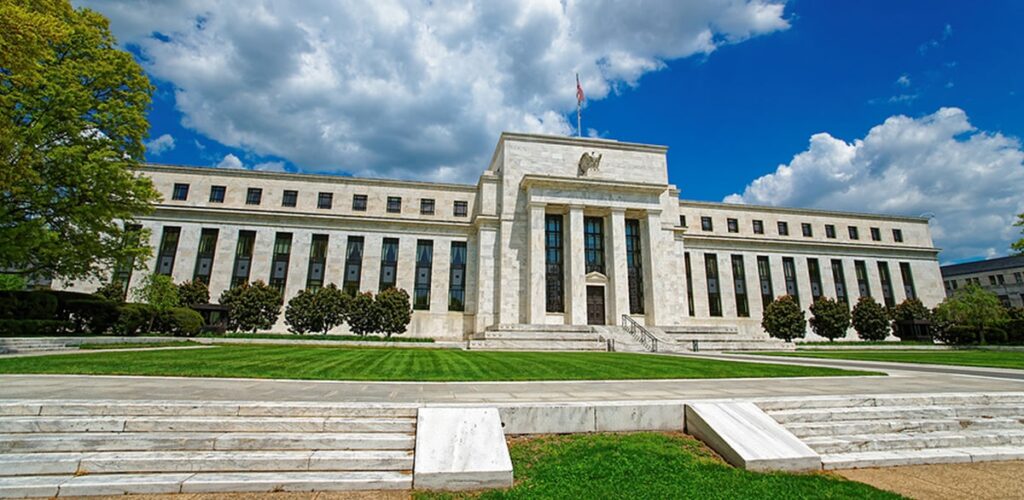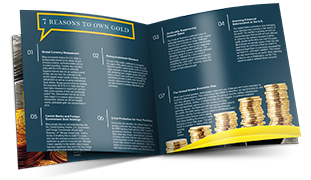 President Trump’s escalating attacks against the Federal Reserve Chair Jerome Powell are rattling investor confidence and threatening the central bank’s historical independence. The growing rift is throwing more waves of uncertainty into an economic sea of volatility.
President Trump’s escalating attacks against the Federal Reserve Chair Jerome Powell are rattling investor confidence and threatening the central bank’s historical independence. The growing rift is throwing more waves of uncertainty into an economic sea of volatility.
Analysts and lawmakers warn that Trump’s ousting of the Fed chair would tank the institution’s credibility, leading to dollar and Treasury weakness and disrupted monetary policy, ultimately driving investors to gold.
Trump Ramps Up Attacks on Powell
Trump’s criticism of Powell began early in their first terms, when he blasted the Fed Chair as “crazy” for raising interest rates. Now, just months into Trump 2.0, the attacks have returned with vigor. Powell has been branded a “moron” and “Mr. Too Late” for not slashing rates fast enough to meet Trump’s demands.
What started as schoolyard insults has morphed into outright threats. According to reports, Trump waved a draft firing letter at a closed-door GOP meeting, testing the waters on removing Powell. The rumors gained traction after a Fannie Mae and Freddie Mac official publicly claimed Powell was considering resignation.
Markets Stumble Across the Board
While both claims were later denied, the damage was done. After stories of Powell’s potential firing swirled, markets reeled:
- The US Dollar Index (DXY) fell by 1%, keeping the greenback’s strength near multi-year lows.
- The stock market also flinched with the S&P 500 slipping by 0.7%.
- Treasury yields surged by 30 to 40 basis points.
These reactions offer a brief window into the widespread fallout that could follow if Trump follows through with his threats.
The Fed’s Independence is a “Superpower”
Trump’s threats to fire Powell—widely viewed as a political smokescreen to deflect blame from economic woes—have been dismissed by legal experts as both baseless and constitutionally dubious. The Fed was intentionally designed as an independent institution, insulated from short-term political interference.
While Fed Chairs are nominated by the president and confirmed by the Senate, they serve fixed terms and can only be removed “for cause”—a strict legal standard typically involving fraud or gross misconduct. At its core, Trump’s beef with Powell is a simple policy dispute regarding the steepness and timing of interest rate cuts, nothing close to removable offenses.
Powell has publicly pushed back on the idea of being fired, stating plainly that such a move is “not permitted under the law.”
In a recent note, Swissquote Bank’s Senior Analyst Ipek Ozkardeskaya alerted investors to the repercussions of the Fed’s loss of independence, which he dubbed the group’s “superpower.”
The Fallout From a Fed’s Loss of Credibility
The smooth functioning of the modern fiat economy rests squarely on the Fed’s independence. The shattering of this foundational pillar, initiated by Powell’s firing, would have disastrous consequences for the broader economy, including:
Disrupted Monetary Policy Guidance
If the Fed faces a shakeup every time presidents disagree with monetary policy, the group effectively loses its ability to influence the economy. This may severely dampen the impact of interest rate changes, leading to more dramatic and prolonged economic downturns.
Dollar & Treasury Selloff
Experts point to the US dollar and US Treasuries as potential casualties of the Fed’s loss of control. The president’s meddling in fiscal policy would quickly erode already weakened confidence in America’s fiscal stability and reliability. A further loss of global trust would stoke the de-dollarization trend and steepen the bond sell-off.
Global Flight to Gold
With the Fed’s control over fiscal policy diminished and a global shunning of US assets, gold would stand to benefit greatly. Already, a worldwide confidence crisis regarding the US’s fiscal standing has tanked the dollar and spiked bonds. The wealth has been disproportionately reallocated to safe-haven assets such as gold, driving prices higher.


